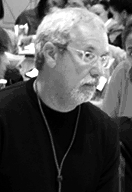By Sam Piha
 |
| Sam Piha |
I first met Bill Fennessy when he innovated a new high school afterschool program in Pasadena, CA. Bill was part of the first run of ASSETs programs - before people knew what high school afterschool was. He subsequently joined THINK Together as their Director of Community Engagement.
At THINK Together, Bill continued his work as an innovator when he introduced a comprehensive approach to workforce preparation within their high school afterschool programs. We invited him to present at our last How Kids Learn Conference and write a paper on the topic of preparing youth for work and career success. Below is an excerpt from his paper and a link to the entire paper.
PREPARING YOUTH FOR
WORK AND CAREER SUCCESS IS THE RIGHT ROLE FOR EXPANDED LEARNING PROGRAMS
By Bill Fennessy
Preparing youth for work and career is now rapidly becoming an
integral part in
preparing youth with the skills they will need in school and
life. This is clearly supported by the
most current research such as RTI International’s “Employability Skills Framework”, as well as the “Foundations For Young Adult Success, A
Developmental Framework” from the University of Chicago. In addition and very importantly to the
Expanded Learning Field, preparing youth for work and career clearly aligns
with what should now be the very familiar “LIAS
Learning Principles”, “Youth
Development Framework”, and the “California
Standards for Expanded Learning Programs”.
 |
| Bill Fennessy |
All youth regardless of their age can begin expanding their
ideas of what they might do as adults. Coupling those ideas with the experience
of related work in the real world brings the important relevance which results
in greater engagement in their work at school.
This is clearly embodied by California’s Linked Learning approach to
education, which has now demonstrated clear evidence of effectiveness as students
in Linked Learning pathways have shown substantially positive shifts in credits
accumulated, attendance, A-G completion, and reduced drop-out rates. The
result of this data has spawned an exponential growth in the numbers of schools
and school districts that are now offering or planning to use the Linked
Learning approach.
Recent and intentional changes made by the CDE Afterschool
Division has made allowable work-based learning as a potential ASES and ASSETs
grant foci. These changes well position
the Expanded Learning field to do more than just put work-based learning
components into their programs, it actually encourages the field to collaborate
in building work-based learning platforms from which to support many new programming
opportunities and engage many other partners in this important work.
-----
About the Author
Bill Fennessy is Director
of Community Engagement and
Work-Based Learning at THINK Together. Bill began his career as the PasadenaLEARNs
Site Coordinator for Blair International Baccalaureate Magnet School, serving
grades 7 – 12. Bill was the leader of BlairLEARNs, a middle school afterschool
program. He was a pioneer in the high school afterschool movement and was part
of the first cohort of ASSETs programs.
Bill is also a Temescal
Associate. He has conducted
a number of training sessions on high school afterschool and was a presenter at
one of the recent How Kids Learn Conferences focused on Preparing Youth For Work And Career Success.




No comments:
Post a Comment